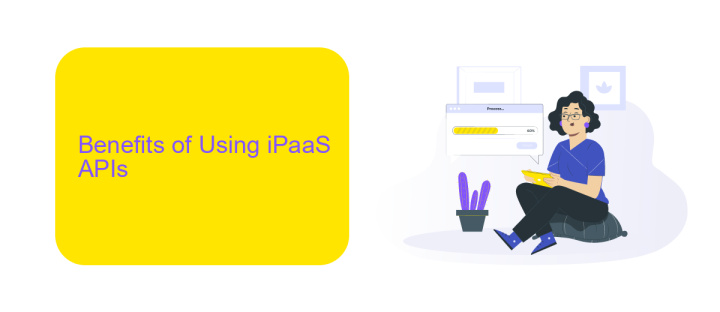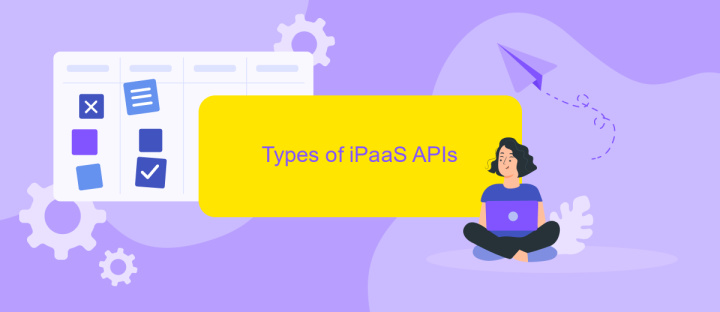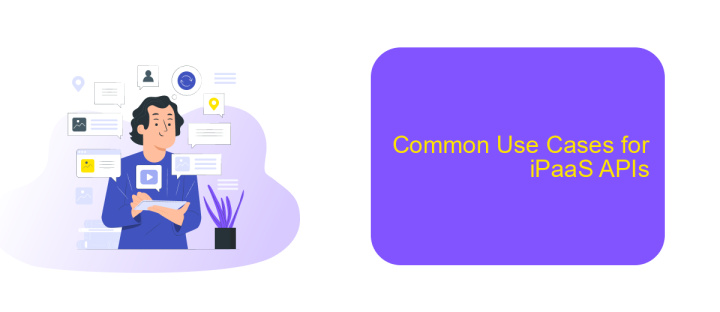iPaaS APIs
In today's rapidly evolving digital landscape, Integration Platform as a Service (iPaaS) APIs have become indispensable for businesses aiming to streamline their operations and enhance connectivity. By leveraging iPaaS APIs, organizations can seamlessly integrate disparate systems, automate workflows, and improve data synchronization, thereby fostering innovation and efficiency. This article delves into the transformative potential of iPaaS APIs and their role in modern enterprise architecture.
Introduction to iPaaS APIs
Integration Platform as a Service (iPaaS) APIs are essential tools for businesses looking to streamline their operations by connecting disparate systems and automating workflows. These APIs provide the necessary infrastructure to integrate various applications, data sources, and services seamlessly, enabling efficient data exchange and process automation.
- Automated Data Synchronization
- Seamless Application Integration
- Enhanced Workflow Automation
- Scalability and Flexibility
- Cost Efficiency
One notable example of an iPaaS solution is ApiX-Drive, which simplifies the integration process by offering a user-friendly interface and pre-built connectors for numerous applications. This service allows businesses to set up integrations without requiring extensive technical knowledge, making it easier to automate tasks and improve operational efficiency. By leveraging iPaaS APIs like those provided by ApiX-Drive, organizations can achieve greater agility and responsiveness in their business processes.
Benefits of Using iPaaS APIs

Integrating iPaaS APIs into your business infrastructure brings a multitude of benefits. One of the primary advantages is the seamless connectivity between various applications and systems, reducing the need for manual data entry and minimizing errors. This not only streamlines workflows but also enhances productivity and operational efficiency. Additionally, iPaaS APIs offer scalability, allowing businesses to easily expand their integration capabilities as they grow, without the need for extensive reconfiguration.
Another significant benefit is the ease of setup and management. Services like ApiX-Drive simplify the process of connecting different software solutions, making it accessible even for those with limited technical expertise. ApiX-Drive provides a user-friendly interface and robust automation features, enabling businesses to quickly establish and maintain integrations. This reduces the time and resources spent on integration projects, allowing companies to focus on their core activities. Moreover, iPaaS APIs ensure data consistency and real-time updates, which are critical for informed decision-making and maintaining a competitive edge.
Types of iPaaS APIs

iPaaS APIs come in various forms, each catering to different integration needs and scenarios. Understanding these types can help businesses choose the right solution for their specific requirements.
- Application APIs: These APIs enable the integration of various software applications, allowing them to communicate and share data seamlessly. They are essential for creating a cohesive workflow between different business tools.
- Data APIs: Data APIs focus on the transfer and synchronization of data between systems. They ensure that data is consistent and up-to-date across all platforms, which is crucial for accurate reporting and analytics.
- Process APIs: These APIs are designed to manage and automate business processes. They help in orchestrating complex workflows by connecting multiple applications and services, streamlining operations, and improving efficiency.
Choosing the right type of iPaaS API depends on the specific needs of your business. For example, services like ApiX-Drive offer a variety of integration options, making it easier to connect different applications and automate workflows without extensive coding knowledge. This flexibility is vital for businesses looking to enhance their integration capabilities and optimize their operations.
Common Use Cases for iPaaS APIs

iPaaS APIs are essential tools for businesses looking to streamline their operations and improve efficiency. By leveraging these APIs, companies can integrate various applications and data sources seamlessly, reducing the need for manual data entry and minimizing errors. This integration capability is particularly beneficial for organizations that rely on multiple software solutions to manage their daily operations.
One of the primary use cases for iPaaS APIs is in automating workflows. Businesses can set up automated processes that trigger specific actions based on predefined conditions, saving time and resources. Additionally, iPaaS APIs are instrumental in enhancing data synchronization between different systems, ensuring that all platforms have up-to-date and consistent information.
- Automating repetitive tasks and workflows
- Synchronizing data across multiple platforms
- Facilitating seamless communication between disparate systems
- Enhancing customer relationship management (CRM) systems
- Streamlining e-commerce operations
For instance, ApiX-Drive offers a robust iPaaS solution that helps businesses set up integrations without any coding knowledge. By using ApiX-Drive, companies can connect their CRM, email marketing, and other essential tools effortlessly, optimizing their workflows and improving overall productivity.
Best Practices for Using iPaaS APIs
When using iPaaS APIs, it is essential to prioritize security by implementing strong authentication and authorization mechanisms. Ensure that all API calls are encrypted using HTTPS to protect data in transit. Regularly update and patch your API endpoints to mitigate vulnerabilities. Additionally, limit the scope of API keys and tokens to specific actions and data sets to minimize potential damage in case of a breach.
To optimize the performance and reliability of your integrations, use services like ApiX-Drive, which simplifies the process of connecting various applications. Ensure that you monitor API usage and set rate limits to prevent overloading your system. Implement robust error handling and logging to quickly identify and resolve issues. By following these best practices, you can maintain a secure, efficient, and reliable iPaaS environment.
FAQ
What is iPaaS?
How does iPaaS help in automating workflows?
What are the key benefits of using iPaaS?
Can non-technical users create integrations using iPaaS?
How secure are the integrations created using iPaaS?
Apix-Drive is a universal tool that will quickly streamline any workflow, freeing you from routine and possible financial losses. Try ApiX-Drive in action and see how useful it is for you personally. In the meantime, when you are setting up connections between systems, think about where you are investing your free time, because now you will have much more of it.

